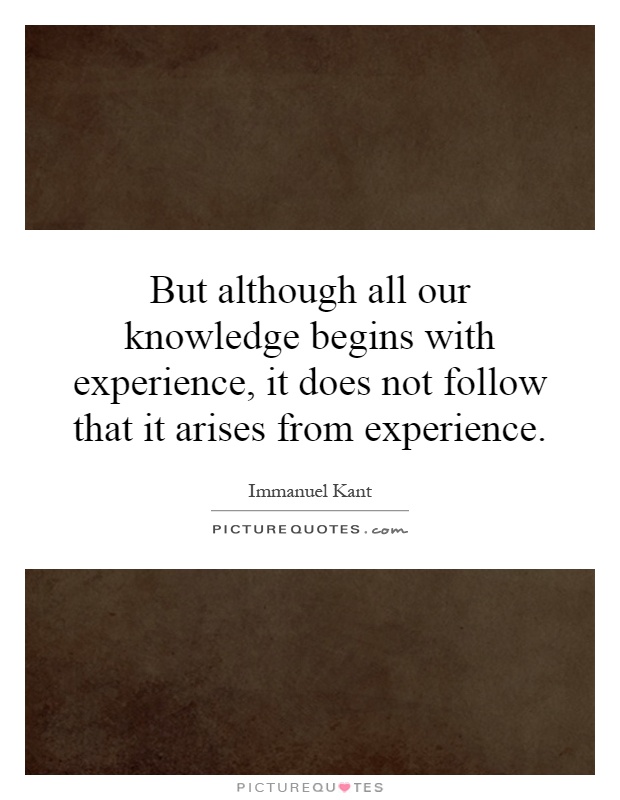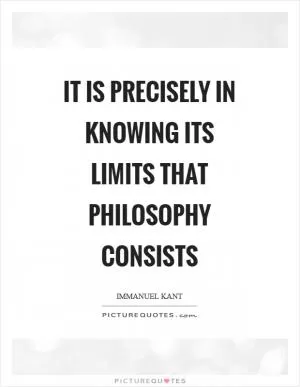But although all our knowledge begins with experience, it does not follow that it arises from experience

But although all our knowledge begins with experience, it does not follow that it arises from experience
Immanuel Kant, a renowned German philosopher, is known for his groundbreaking work in epistemology and metaphysics. One of his most famous quotes is, “But although all our knowledge begins with experience, it does not follow that it arises from experience.” This statement encapsulates Kant’s unique perspective on the nature of knowledge and the role of experience in shaping our understanding of the world.Kant’s philosophy is often referred to as transcendental idealism, which posits that our knowledge of the world is not derived solely from sensory experience, but is also shaped by the innate structures of the mind. In other words, while experience is the starting point for our knowledge, it is not the sole source of our understanding of the world. Kant argues that our minds are equipped with a priori concepts and categories that organize and interpret our sensory experiences, allowing us to make sense of the world around us.
For Kant, experience is necessary for the acquisition of knowledge, as it provides the raw material upon which our cognitive faculties operate. However, he maintains that our understanding of the world is not simply a passive reflection of sensory data, but is actively constructed by the mind through the application of concepts such as space, time, causality, and substance. These concepts are not derived from experience, but are inherent in the structure of the mind itself.
Kant’s distinction between empirical knowledge (knowledge derived from experience) and a priori knowledge (knowledge independent of experience) has had a profound impact on the development of modern philosophy. His critique of pure reason challenged traditional empiricist and rationalist accounts of knowledge, and laid the groundwork for a new understanding of the relationship between experience and knowledge.












 Friendship Quotes
Friendship Quotes Love Quotes
Love Quotes Life Quotes
Life Quotes Funny Quotes
Funny Quotes Motivational Quotes
Motivational Quotes Inspirational Quotes
Inspirational Quotes